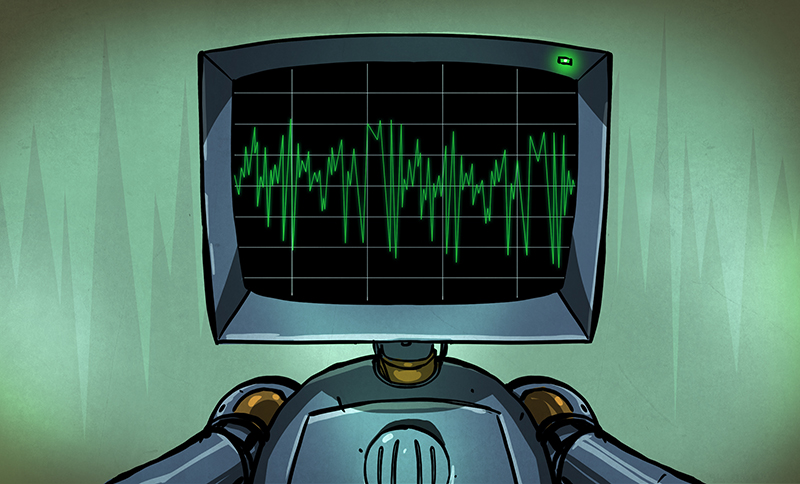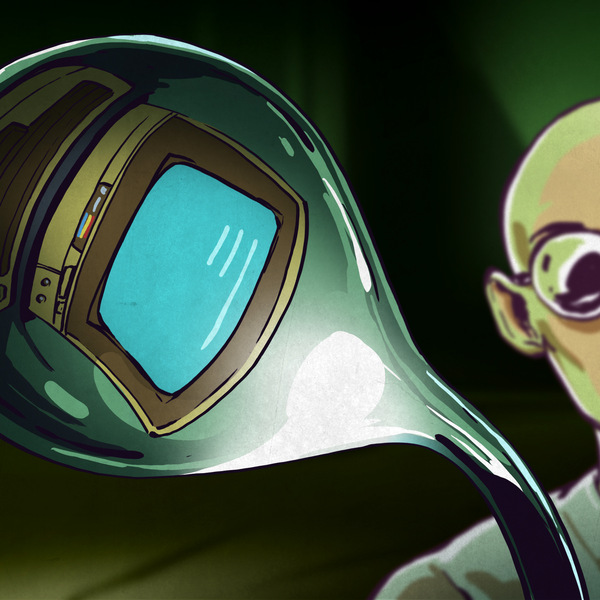We here at Hackaday are super-duper proponents of open source. Software, hardware, or firmware, we like to be able to see it, learn from it, modify it, and make it ourselves. Some of this is self-serving because when we can’t see how it was done, we can’t show you how it’s done. But it’s also from a deeper place than that: the belief that the world is made better by sharing and open access.
One of the pieces of open-source firmware that I have running on no fewer than three devices in my house right now is grbl – it’s a super-simple, super-reliable G-code interpreter and stepper motor controller that has stood the test of time. It’s also GPL3 licensed, which means that if you want to use the code in your project, and you modify it to match your particular machine, you have to make the modified version available for those who bought the machine to modify themselves.
So when Norbert Heinz noticed that the Ortur laser engravers were running grbl without making the code available, he wrote them a letter. They responded with “business secrets”, he informed them again of their responsibility, and they still didn’t comply. So he made a video explaining the situation.
Good news incoming! Norbert wrote in the comments that since the post hit Hackaday, they’ve taken notice over at Ortur and have gotten back in touch with him. Assuming that they’re on their way to doing the right thing, this could be a nice win for grbl and for Ortur users alike.
Inside the free software world, we all know that “free” has many meanings, but I’d bet that you don’t have to go far outside our community to find people who don’t know that “free” software can have tight usage restrictions on it. (Or maybe not – it all depends on the license that the software’s author chose.) Reading software licenses is lousy work better left for lawyers than hackers anyway, and I can no longer count how many times I’ve clicked on a EULA without combing through it.
So what Norbert did was a good deed – educating a company that used GPL software of their obligations. My gut says that Ortur had no idea what they needed to do to comply with the license, and Norbert told them, even if it required some public arm-twisting. But now, Ortur has the opportunity to make good, and hackers everywhere can customize the firmware that drives their laser engravers. Woot!
It’s probably too early to declare victory here, but consider following Norbert’s example yourself. While you can’t bring a lawsuit if you’re not the copyright owner, you can still defend your right to free software simply by explaining it politely to companies that might not know that they’re breaking the law. And when they come around, make sure you welcome them into the global open-source hive mind, because we all win. One of us!
















Totally agree. Well written.
Third sentence should probably read:
Some of this is self-serving because when we can’t see HOW it was done, we can’t show you how it’s done
Thanks!
My sneaky cynical side suspects Ortur was well aware of the terms of the software license and deliberately ignored them on the assumption no one would notice, and are now being ‘responsible’ because they got called on it.
I hope you’re right, Eliot; I like your assumptions more than my own.
No, according to my contact person at Ortur, they never ever read or discussed the GPL stuff in the software department. He has Open Source in mind, but also doesn’t know how to setup a repository, now that he got the job to do so in the coming weeks (they gave me a roadmap). More news to come, stay tuned!
Oh good – thanks for the additional info! I don’t like being cynical, it’s always good to have some positive info to refute it.
If they don’t audit the external libraries they use BEFORE integrating them into their code base, they’re headed for big, big legal trouble – which is why companies have lawyers that have their eye into that sort of things. GPL has redistribution rules, but it’s not usually high risk because GPL software is not usually distributed by large companies, so you can get away without a lawsuit and settle with the developer if you get caught, unless the FSF gets involved. But if they use libraries that are backed by larger companies, or worse, their competitors, without having considered the legal implications, they’re in deep sh*t.
If they sell hardware then hard to see what they’ve got to lose in opening up the software. It’s likely disappointingly little – pin assignments and calibration?
I imagine the programmer telling their supervisor:
“hey boss, we’re using GPL code and have to include our source code in order to use it.”
“We’re already behind schedule, we don’t have time for any additional features, just ship it.”
I think, this is a solid move by Ortur to invert bad PR into good PR. At least I will consider and remember their company name for years now.
Maybe we need to call this for what it is: software piracy.
Is there a legal avenue that can prevent the import of these devices due to them containing pirated software?
We could but piratebay would object. Something about setting a precedent.
Yeah let’s punish them even though they’re making it right
To be fair, they haven’t “made it right” yet… and while they are making the right noises, the wrong has not yet been corrected.
The bigger issue though is right now, today it’s Ortur pirating grbl… tomorrow it’ll be someone else pirating something else. We’ve seen it time-and-time again… sometimes the company comes clean (e.g. Ortur), sometimes they don’t.
Now let’s consider something similar: We had the case a while back where Adafruit had imported a whole heap of off-brand multimeters, Fluke raised an objection, and they basically were consigned to the scrap bin, on the basis of “pirating” the visual design of an existing product.
https://hackaday.com/2014/03/19/multimeters-without-a-country-flukes-broad-trademark-bans-yellow-multimeter-imports/
If that sort of thing is not acceptable to our customs offices, nor should hardware whose software infringes the rights of its end users or the software developers who wrote the code that made that software happen.
The customs office cannot have it both ways.
China = Zero Respect for GPL > Zero Surprise:
Company Name: Dongguan Ortur Intelligent Technologies Co., Ltd.
Mobile phone: 138-2696-8350 Mr. Zeng
Company airlines(?): 0769-86292760
Company mailbox: ortur@ortur3d.com
Official website: http://www.ortur3d.com/en/index.htm / https://ortur.tech/
Alibaba shop: ortur3d.1688.com
Company Address: Room 201, building 1, Ruijin science and Technology Industrial Park, 6 Tianheng Road, Changping Town, Dongguan City
…and this is very likely the first of the cheap laser cutter manufacturers that will open the source of the grbl part. They sent me a roadmap of how and when they will publish the code. It will happen, soon. Stay tuned!
Can you show us that roadmap?
It is work in progress, more on the latest Hackaday blog entry:
https://hackaday.com/2022/07/18/ortur-laser-will-go-open-source/
Sounds like sleeze to me. Go until you get caught and instead of just zipping up or tarring up their stuff, they have to make a road map for releasing it? Urg. The funny thing is if they had wanted to keep a lid on it, just giving it out to the people who ask for it may have made the least amount of noise. Now they have a lot of people wanting a peek and they do not look so honest, in fact they look pretty sleezy.
This seems a lot like AI stuff I see published where the people want to publish it to be published but OMG try to build it and you can spend a very very long time mired in dependency conflicts. It is like here is the code, good luck. Actually some folks are very helpful but others you just get the vibe they see $$ signs in their eyes and they wanna show you what it can do but seem perhaps less hip on your spinning it up on your own
Check this out: https://hackaday.com/2022/07/18/ortur-laser-will-go-open-source/
From scolded about license violation to starting to figure out github in a weekend! Not bad.
@Elliot Williams said: “From scolded about license violation to starting to figure out github in a weekend! Not bad.”
Great. Better late than never. We all need to do more to encourage anyone infringing FOSS licenses to comply, not just the Chinese (who are the worst of the offenders). Another option is to curb using the likes of the GPLx licenses with higher compliance barriers and use more permissive licenses such as the BSD license instead.[1] But that doesn’t always work, especially with software that is supported by a community of contributors. That is where the likes of the GPLx licenses get more traction. There are free sites available that can help you choose an open source license.[2][3] Copyright, trademark, licenses, disclaimers, liability mitigation, etcetera for commercial products are a completely different subject. To be safe, hire a Lawyer.
* References:
1. The BSD (Berkeley Software Distribution) licenses:
The 2-Clause BSD License
https://opensource.org/licenses/bsd-license.php
The 3-Clause BSD License
https://opensource.org/licenses/BSD-3-Clause
2. Choose an open source license
https://choosealicense.com/
3. Open Source Initiative – Licenses & Standards
https://opensource.org/licenses
Any update on this or just more empty Ortur ]promises?